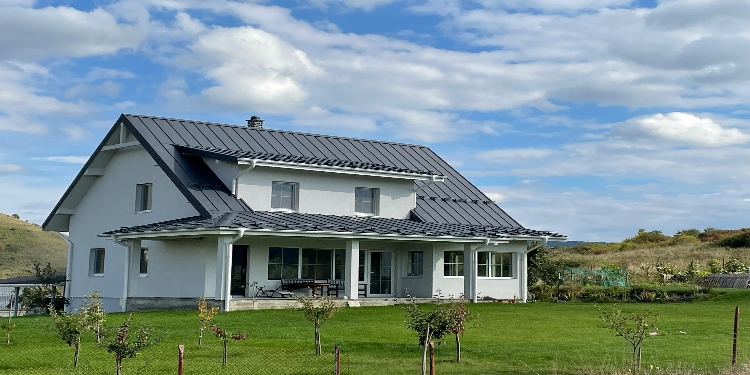We are all witnessing drastic climate change worldwide, and no one can deny that the main reason behind this change is the excessive use of fossil fuels. However, there is no need to sit back while doing nothing. We now have renewable energy sources contributing to a green and clean earth.
We can be a part of the change if we opt for alternative energy sources like solar, wind, and hydropower. These sources are eco-friendly and also budgeted, which makes them suitable for homes. Let’s find out more about these renewable energy sources and their benefits.
Solar Power
It is a famous yet useful and natural energy source for homes. You can install them on rooftops, and they catch sunlight and convert it into electricity through photovoltaic cells. With the advancement in technology, solar panels are more efficient and affordable, plus an attractive option for households worldwide. Hit renew-able.co.uk to get a free quote.
If you live in an area with plenty of sunlight, solar power is perfect for reducing your electricity bills.
Benefits
- Sunlight is easily and freely available in most regions.
- Fewer electricity bills over the long term.
- Minimal maintenance requirements.
- Potential for government incentives and tax credits in many countries.
Wind Power
Here comes another natural source, wind energy, which has long been utilized for large-scale electricity generation. The good news is that small-scale wind turbines are now available for residential use.
These turbines are mounted on poles or rooftops and grab wind energy to generate electricity. The viability of wind power hinges on variables like regional wind speeds and zoning laws.
Benefits
- Clean and renewable source of energy.
- Perfect for rural areas with plenty of wind resources.
- It can complement solar power to provide energy in changing weather conditions.
Geothermal Heating and Cooling
Geothermal energy consumes natural heat stored under the Earth’s surface to provide heating, cooling, and hot water for residential properties.
You can go for the geothermal heat pumps to transfer heat between the ground and home. It offers efficient climate control year-round. Moreover, you can use it to generate electricity through power plants.
Benefits
- Highly efficient and consistent heating and cooling.
- There are fewer initial costs compared to traditional HVAC systems.
- Long lifespan with minimal maintenance requirements.
Biomass Energy
Biomass energy encompasses the combustion of organic leftovers like wood pellets, agricultural residues, or biogas to generate heat and electricity. Although biomass systems demand much space and careful supervision, they present a sustainable substitute for fossil fuels for heating and generating power in residential settings.
Benefits
- Use locally available organic materials.
- They are carbon-neutral if you manage sustainably.
- Offers an alternative to conventional heating fuels like natural g
- as or oil.
Hydropower
With water it generates power, yes it’s true! Hydropower uses the energy usually from rivers or small streams, to generate electricity through turbines. For homes, micro-hydropower systems are efficient and provide enough power for basic needs like light bulbs, refrigeration, and cooking.
Benefits
- Long lifespan with low maintenance requirements.
- The potential to generate electricity consistently throughout the year.
- No air pollution or greenhouse gas emissions.
- It can provide electricity independent of the grid in remote areas.
Which Option is Best For Homes?
Each option is best, but the energy source depends on your home location, resources available, and budget. Solar power is the most popular and widely used source due to its affordability, convenience, and abundant sunlight in many regions. If you go for this, you can also enjoy other renewable sources to fulfill your home’s energy needs.
In some places, wind and hydropower are really suitable and cost-effective, but it depends on the weather where you are living. Geothermal energy is also a great option, but its upfront costs are higher than other options. So, it is better to do your research well, see your needs, and then make your final decision.
Ending Note
Are you confused with so many options? No worries! You can always consult a professional who can give you better advice according to your needs, the area’s requirements, and everything else.
So, switch to renewable energy sources and play your part in supporting a clean and green environment. It creates a huge impact. Plus, you can save the cost of electricity bills. I hope this information helps you to hit the right option for your home.


![7 Best POS Software in the UK [2026 Edition]](https://todaynews.co.uk/wp-content/uploads/2026/02/7-Best-POS-Software-in-the-UK-2026-Edition-360x180.png)







































































